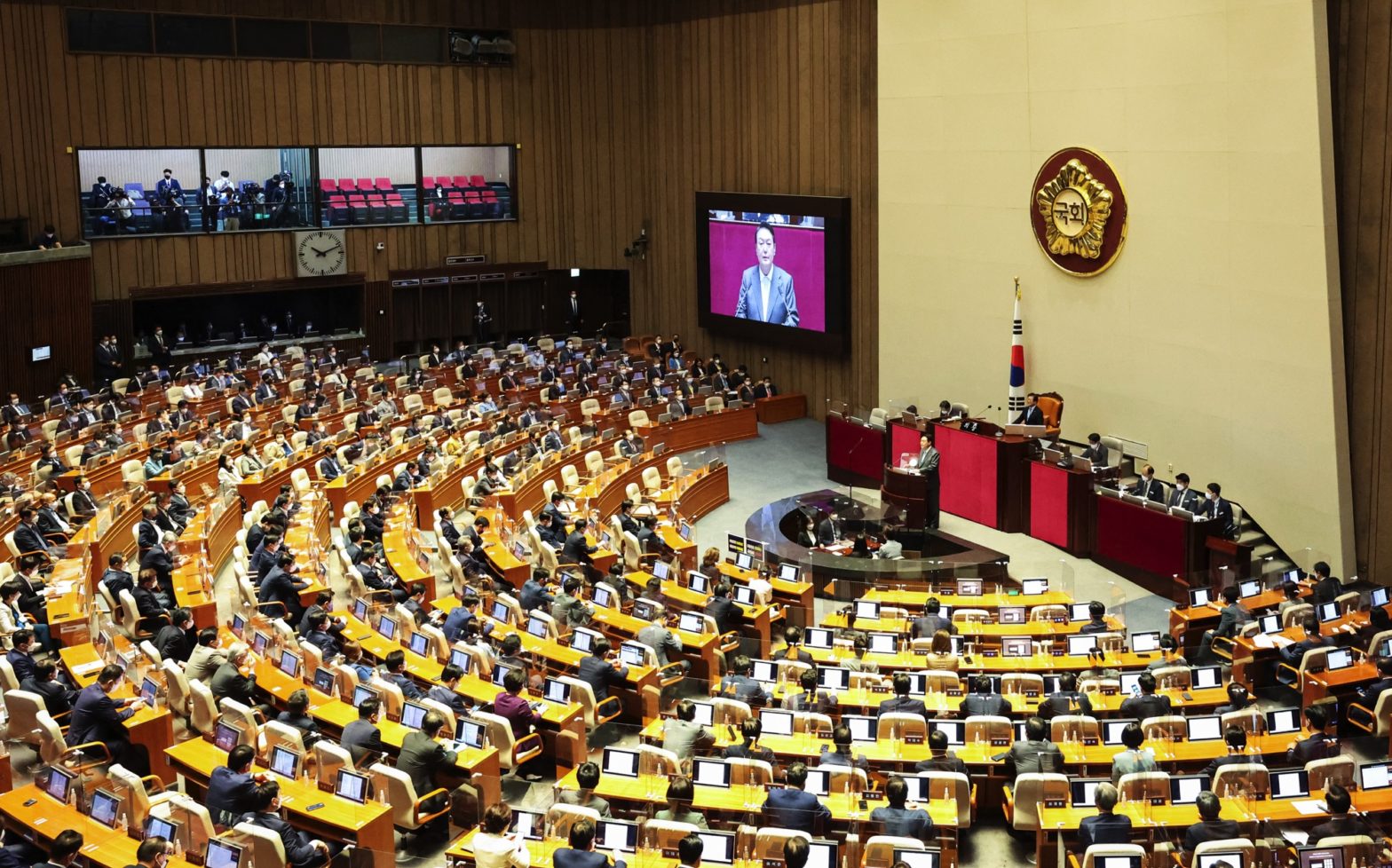Yoon appoints Han despite Minjoo’s opposition
Minjoo’s nightmare come true: the elite prosecutor who had been persecuted for coming after Minjoo’s darling Cho Kuk has made a comeback as the Justice Minister.
Why does Minjoo hate Han so much?
- They fear Han may lead a legal purge of the former administration officials including Moon.
- This fear was the chief motivation for their too-much-hastened reform of the prosecutors, namely the complete deprivation of the Prosecutors’ investigation authority.
- However, Justice Minister has the authority to assign special prosecutors without the Assembly’s approval, which would cancel out the effect of the reform in effect.
Minjoo lawmakers tried to taint his image in the confirmation hearing, but instead, they brought themselves an epic fail.
What did Han say at his inauguration?
- The first thing he vowed to do was reestablishing the joint investigation department of securities fraud.
- The joint task force for financial crimes was mysteriously disbanded in 2020 by then minister Choo Mi-ae, which some suspected to be a ploy to impede the financial crime cases related to Minjoo politicians (I know it sounds like a conspiracy theory, but even hardcore Minjoo supporters couldn’t explain it!).
- In his own words: “Lawbreakers who did damage to ordinary people [italics mine] will face the music their crimes deserve. Market participants will regain their trust that the rules will be enforced.”
- Interestingly, he also called for a better immigration policy: https://twitter.com/SubinBKim/status/1526566073210142721
My two cents: there will be confusion in law enforcement when Minjoo’s prosecutor reform goes into effect. Han posing as the enforcer of the rules (for ordinary people) will benefit.
Yoon’s reform: pension, labor, education
From his first Assembly speech (something close to the state of the union address), Yoon mentioned three major reforms in the pension scheme, labor, and education policies.
The first two will be the hardest of all:
- Any serious reform of the pension scheme has to get through the intense opposition of those who are getting more than the others, like the public servants in this case.
- Strong enough to go on strike to land a blow to the nation’s manufacturing sector, trade unions abhor the sound of reform.
This is also why the Moon administration did nothing on these issues.
But they are very serious:
- The current pension scheme, which wasn’t devised with an aging society in mind, will be broken within two decades.
- The current employment structure, in which the 20%—unionized, regular job holders in conglomerates and public institutions—exploit the 80%—non-regular workers who are not protected at all, is not sustainable.
Is the Yoon administration capable of making progress (a success would be asking too much) in them? I am skeptical. Yoon needs someone who understands his vision and is capable of undertaking intense negotiations between various stakeholders in the cabinet, but I don’t see one.
June election: PPP still leads in polls; largest walkovers in two decades
This week’s polls show:
- For the former Minjoo leader Song Young-gil, the Seoul mayor race is still a non-starter; PPP’s Oh Se-hoon enjoys two times more support than Song.
- In Incheon and Gyeonggi, PPP leads by a small margin.
- One interesting thing is that Minjoo is losing even in Lee Jae-myung’s constituency for the Incheon mayor, which might indicate that Lee’s running for the by-election isn’t beneficial for the party.
- In other major local governments, PPP enjoys a good lead.
On another note, the June local election will see the largest walkovers in two decades.
- Among the regional councilors, 96 walkovers out of 106are happening in the Honam and Youngnam regions.
- The two regions are historically lopsided—Honam to Minjoo and Youngnam to conservative (PPP).
It wouldn’t be hard to imagine how competent these councilors and administrators will be.
Maybe we are being punished for not taking much care in local politics with all the weird statues we’ve seen when traveling around.
My story on why Gwangju has no big shopping complexes tells a bit of the problem. One suggestion is to ease the restrictions on forming a political party, which experts consider to be one of the harshest in the world, in order to boost competition.
The current Political Parties Act forces any political party to have its headquarter in the capital and at least five branches in other cities and provinces. Which negates local-based political parties.
